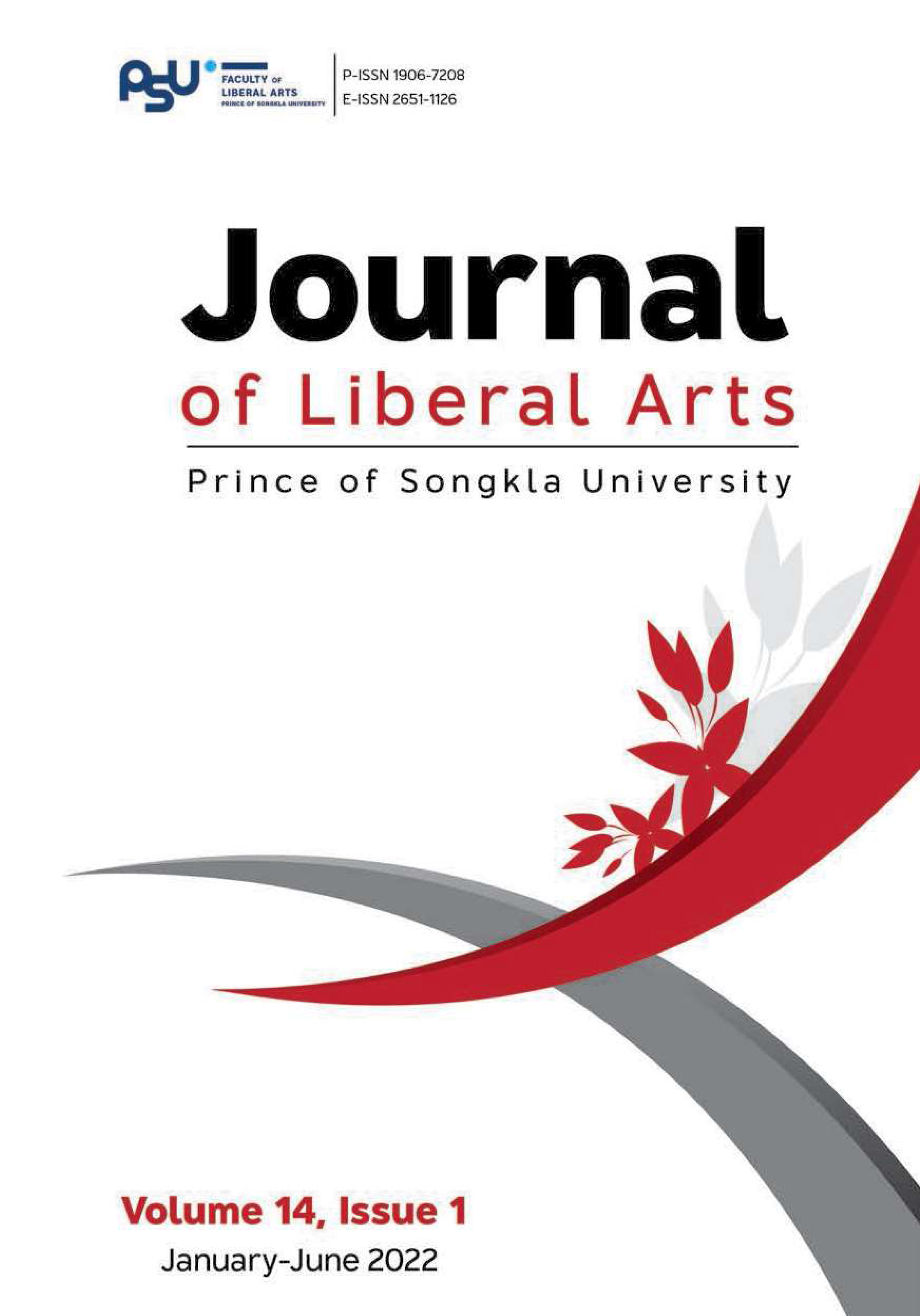The Analysis of Types and Functions of Chinese Interrogative Sentences Used between Hotel Guests and Front Desk Staff in China
DOI:
https://doi.org/10.14456/jlapsu.2022.3Keywords:
interrogative sentences, language functions, conversation, hotel staff, guestsAbstract
The objectives of this research were to 1) study the types of Chinese interrogative sentences used in conversations between hotel staff and guests, 2) study the purposes of the questions asked in conversations between hotel staff and guests and 3) adapt the results to design the content of a Chinese for hospitality course. Data for this quantitative research study were collected by recording conversations between hotel staff and guests in various situations. The conversations were then transcribed to analyze the usage frequency of different types of interrogative sentences and the purposes of each question. Thirty-five audio recordings of a total of 20,285-word conversations were transcribed and analyzed. Results showed that the most common interrogative sentence demanded a true or false answer, followed by a specific question. Less frequent types of interrogative sentences were choice questions. There were 16 different purposes of the questions including seeking/requesting information, seeking advice, giving information, seeking confirmation, requesting nonverbal action and reminding. It was recommended that the design of a Chinese for hospitality course content focus on grammar, culture and language functions and also on the different types of interrogative sentences, while the purposes of different questions should be assimilated into each unit or lesson. The instructor should also encourage students to understand the different types of interrogative sentences and the purposes of the questions.
References
Austin, J. L. (1962). How to do things with words. Oxford University Press.
Blue, G. M., & Harun, M. (2003). Hospitality language as a professional skill. English for Specific Purposes, 22(1), 73-91.
Chun, L.J. (2019). The study on Chinese for hospitality course in Thailand’s higher education based on needs analysis theory. [Unpublished doctoral dissertation]. Beijing Language and Culture University.
Fareh, S. & Maher B. M. (2008). Pragmatic functions of interrogative sentences in English: A corpus-based study. International Journal of Arabic and English Studies (IJAES), 9, 114-164.
Gee, J. P. (2011). An introduction to discourse analysis: Theory and Method: Huayu fenxi daolun (2nd ed.). Chongqing University Press.
Hutchby, I., & Wooffitt, R. (2011). Conversation analysis. Polity.
Li, Y. & Fan, X.Y. (2007). Discourse analysis. Shanghai Foreign Language Education Press.
Luo, Q. (2015). Mood in interpersonal meaning in doctor-patient conversation: A systemic functional approach [Unpublished doctoral dissertation]. Southwest University.
Shao, J.M. (2007). Modern Chinese language (2nd ed.). Shanghai Education Press.
Stubbs, M. (1997). Discourse analysis: The sociolinguistic analysis of natural language. University of Chicago Press.
Sujaritlak, D. (2014). Conversation analysis and sustainable development. Journal of Language and Culture, 36(1), 83-87. [in Thai]
Tan, R.C. (2007). Pragmatic study of interrogative sentences in modern Chinese [Unpublished master’s thesis]. Yanbian University.
Ting, S.Y. (2008). Spoken discourse analysis of telephone service encounters in a hotel [Unpublished Bachelor Dissertation]. Malaysia Sarawak University.
Wang, Y.T & Li, Y. (2014). A study on the linguistic features of hotel English based on Corpus Linguistics. Kaoshi Zhoukan, (93), 80-81.
Zhang, B.J. (1994). The functional perspective of Chinese syntax. Chinese Language Learning, (03), 15-20.
Zhang, L. (2007). Business Chinese spoken language research: On-site marketing language survey and analysis. Communication University of China Press.
Zhong, C.Y. & Zhou, X.H. (2010). The application of cooperative language principles in hospitality industry: case study on hotels in Guilin. Journal of Language and Translation, (6), 116-117.
Downloads
Published
How to Cite
Issue
Section
License
Copyright (c) 2022 โชติกานต์ ใจบุญ, Ren Kexin

This work is licensed under a Creative Commons Attribution-NonCommercial-NoDerivatives 4.0 International License.
The authors retain the copyright to their article but the Journal of Liberal Arts, Prince of Songkla University reserves the exclusive rights to first publication.






